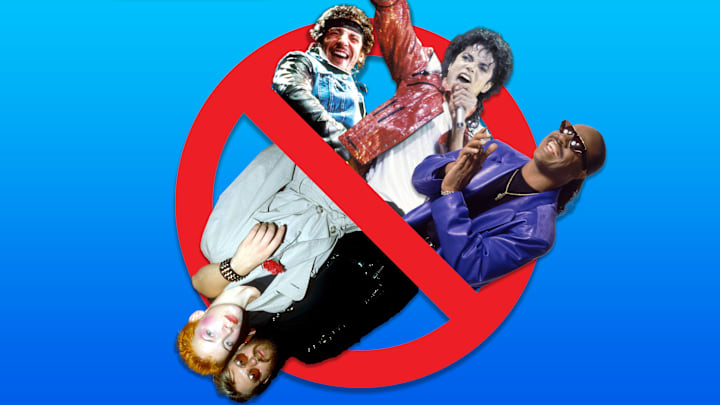Trump's Sugar Bombshell: Is Cane Sugar Coke a Healthier Choice?
:max_bytes(150000):strip_icc()/Health-GettyImages-1239099323-30991676ea1b48f8a3555d8a9b7b2bcf.jpg)
President Donald Trump recently announced via social media that Coca-Cola had agreed to switch from high-fructose corn syrup (HFCS) to cane sugar in its regular Coke products sold in the U.S. Trump heralded this as a positive development, stating, “This will be a very good move by them — You’ll see. It’s just better!” However, the Associated Press reported that Coca-Cola had not yet confirmed this potential change, leading to questions about the actual health implications of such a switch.
Currently, American Coke is sweetened with high-fructose corn syrup, a liquid sweetener derived from cornstarch. This is a refined sugar, meaning it originates from natural sources but undergoes processing to strip away other nutrients, leaving primarily pure sugar. Historically, Coke was initially made with cane sugar. The company transitioned to the more economical high-fructose corn syrup in the early 1980s. Interestingly, many other regions globally, including the version known as Mexican Coke sold in classic glass bottles in the U.S., continue to use cane sugar as their primary sweetener.
Despite the perception that cane sugar might be a healthier alternative, nutrition experts largely disagree. They assert that Coke sweetened with cane sugar is no healthier than its high-fructose corn syrup counterpart. The two sweeteners share significant similarities at a molecular level, both being refined sugars. Cane sugar, sourced from sugarcane or sugar beets, is also processed. Lisa Moskovitz, RD, CDN, CEO of the NY Nutrition Group, noted that while cane sugar might appear healthier due to its “natural” label, this “halo effect” is misleading. Both cane sugar and high-fructose corn syrup consist of an approximate 50/50 blend of simple sugars, fructose and glucose, and are metabolized in the body in virtually the same manner.
Caroline Susie, RDN, LD, a spokesperson for the Academy of Nutrition and Dietetics, further explained that the human body doesn't differentiate between cane sugar and high-fructose corn syrup; it simply recognizes them as sugar that needs to be broken down. Both experts emphasized that excessive consumption of any refined sugar can lead to serious health risks, including weight gain, an elevated risk of type 2 diabetes, heart disease, and fatty liver disease. Susie concluded, “At the end of the day, it’s added sugar. Those added sugars really do add up.”
Given these facts, a broader question arises: should people be drinking Coke at all? Experts generally advise against regular soda consumption, even if an occasional indulgence is acceptable. Moskovitz highlighted that regardless of the sweetener, soda remains an “empty-calorie, blood glucose-spiking beverage.” While diet soda offers a sugar- and calorie-free alternative, nutritionists still do not highly recommend it, as Susie pointed out that both regular and diet sodas provide
You may also like...
Mayhem and Mystery: Laser Pens, Crowd Fights & Bizarre Ads Plague Serbia vs England Clash!

England secured a dominant 5-0 win against Serbia in a World Cup qualifier, a match marred by unsettling crowd incidents...
World Cup Qualifier Shocker: Super Eagles Fight for Survival Against South Africa Amidst Osimhen Injury Drama!

In a critical 2026 FIFA World Cup qualifier, Nigeria and South Africa battled to a 1-1 draw at the Toyota Stadium in Blo...
007 Shake-Up: James Bond Frontrunner Fuels Casting Speculation with Conflicting Statements

Mike Dickman, a rising British actor, has been linked to the vacant James Bond role while building an impressive portfol...
Live Aid Revisited: Unearthing the Event's Complex Legacy and Rebel Artists

Live Aid, the monumental 1985 charity concert, successfully raised millions for Ethiopian famine relief through iconic p...
Unveiling the 2025 MTV VMAs: Winners, Performers, and Presenters Revealed!

The 2025 MTV Video Music Awards, held at New York's UBS Arena, celebrated music's top artists with Lady Gaga leading the...
Love Takes Flight: Taylor Swift and Travis Kelce's Epic Engagement Revealed!

Travis Kelce opens up about his two-year relationship with Taylor Swift, highlighting its surprising normality despite p...
Oasis Roars Back: Reunion Rocked by Ticketmaster Feud and 'Free Rider' Slam!

Oasis has kicked off its highly anticipated reunion tour with bassist Andy Bell confirming his return, but the comeback ...
Explosive Claims and Defense: Alexander Brothers Case Rocked by Accusations and Legal Counterarguments

Luxury real estate moguls Oren, Alon, and Tal Alexander face sex trafficking and assault charges from over 60 alleged vi...